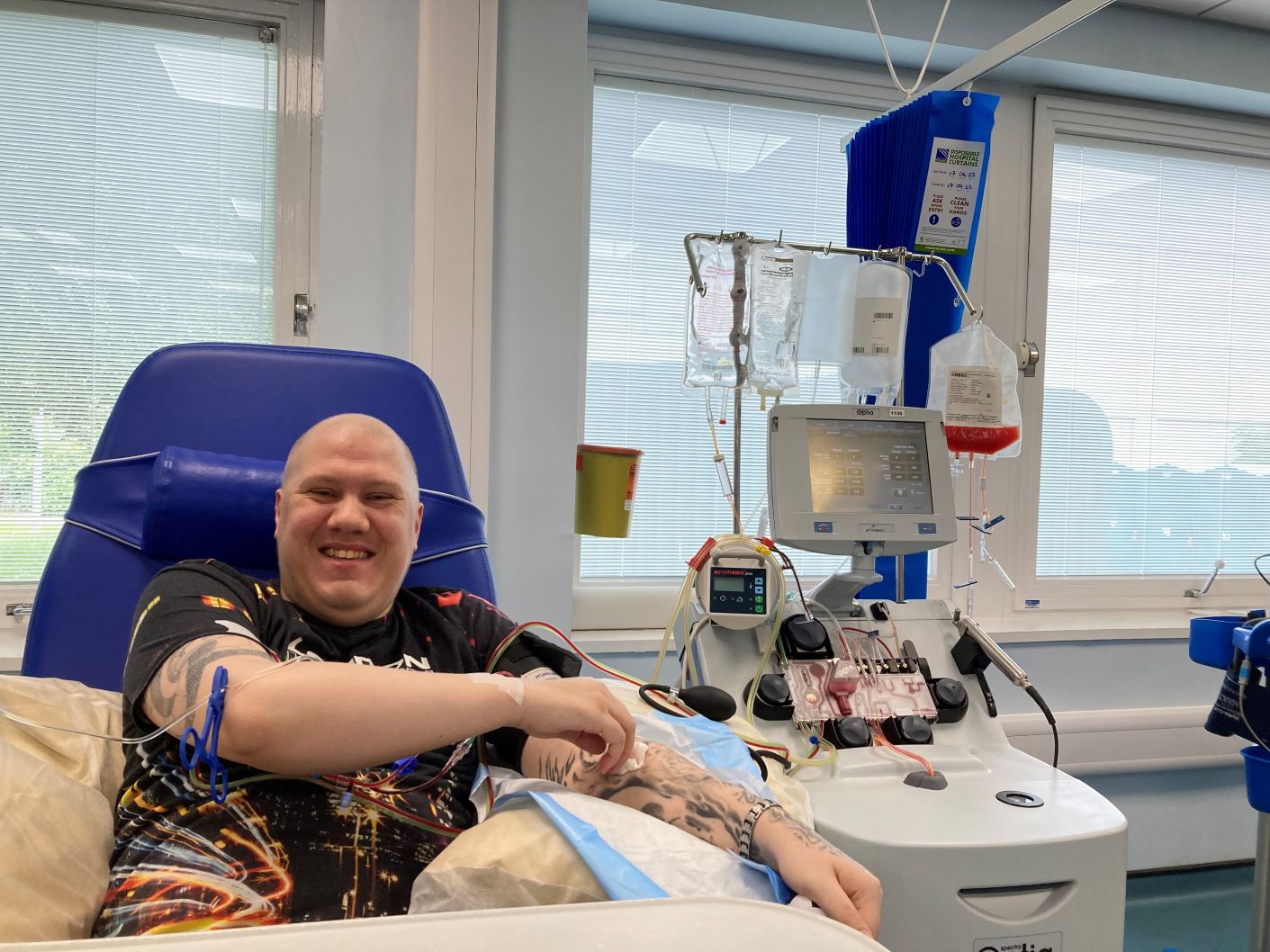First patient has new cutting-edge therapy for cancer patients
Oxford University Hospitals is now a highly specialised NHS centre offering CAR-T therapies to people with cancer, after NHS England expanded access to the potentially life-saving treatment.
The cutting-edge therapy, which use a patient’s own immune cells to create a tailored treatment, has been made available through the Cancer Drugs Fund (CDF) for people with certain forms of blood cancer.
It is a highly complex and potentially risky treatment but it has been shown in trials to cure some patients, even those with quite advanced cancers where other available treatments have failed.
Blood cancer patients, especially when they relapse, have a poor prognosis, and generally do not survive very long. This new service is expected to deliver this life-saving treatment to at least 20-30 patients each year, giving hope to more patients with blood cancer than ever before. Four patients have now been cared for with this new treatment at OUH.
Stephen's story
 Stephen Milton, 29, became the first person to received Car-T cell therapy at Oxford.
Stephen Milton, 29, became the first person to received Car-T cell therapy at Oxford.
His own T-cells – part of the immune system – were collected by the specialist NHS Blood and Transplant Therapeutic Apheresis Services unit which is based within the John Radcliffe Hospital.
The cells were then genetically engineered to fight the cancer and stored at NHSBT’s Cellular and Molecular Therapies laboratory in Oxford for storage at ultra-low temperature until they were ready for infusion by the OUH team.
Stephen, who is from Aylesbury, received Car-T treatment for Non-Hodgkin lymphoma and said,
"My body wasn’t responding to even aggressive chemotherapy so they suggested CAR T," said Stephen, a horse racing bookmaker.
"So far, I am doing well and I will have more tests. I know it’s a rare treatment so I was glad to get it. All the medical staff have been brilliant."
Professor Graham Collins, Consultant Haematologist and Lymphoma Lead for Oxford University Hospitals, said:
"The development of CAR T-cell therapy in Oxford is vital to optimise the outcomes of patients with different types of blood cancer.
"Before now, patients have had to travel long distances and be away from home and loved ones for many weeks. The OUH and NHSBT collaboration enables us to deliver comprehensive care to blood cancer patients closer to home."
Teresa Baines, Head of NHSBT Therapeutic Apheresis Service, said:
“We’re uniquely placed to support the delivery of more ground-breaking new cell and gene therapies such as Car-T and we’re delighted Stephen is doing well thanks to this new partnership with Oxford University Hospitals.”